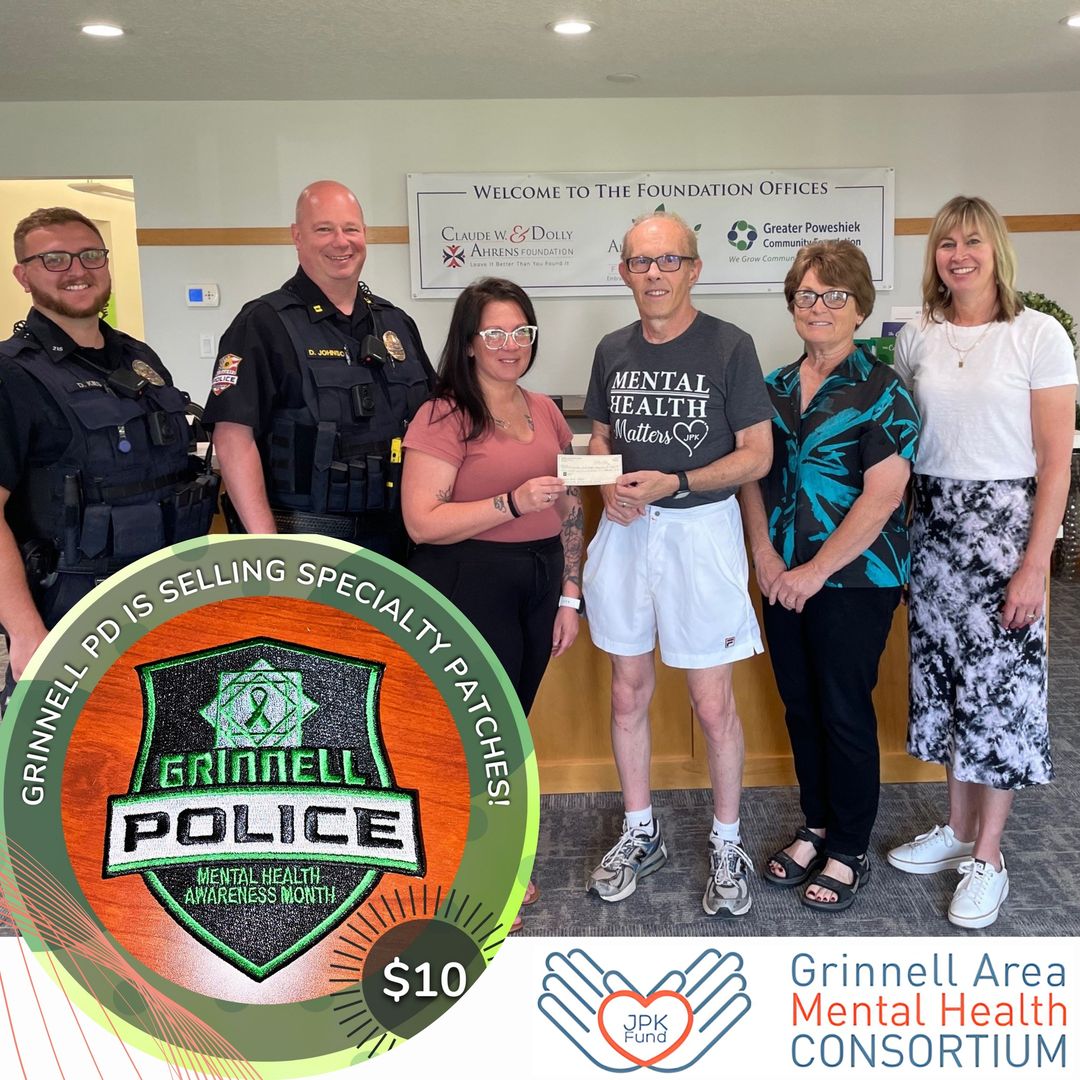
Items of Interest
Grinnell Area Mental Health Consortium-JPK
Created in 2017, the purpose of this fund is to serve those in the Poweshiek County area with mental health needs by providing financial assistance support, convening groups around mental health needs and advocating for those in need. Services for mental health needs in the local area are unprecedented. The goals of the fund are as follows:
- To help provide financial assistance and support to as many area residents as possible who need mental health support who would otherwise be unable to obtain it.
- The fund will reimburse providers by means of a voucher system providing services.
- The fund will help defray medication costs and/or assist in finding cheaper medicines or alternatives.
- The fund will support educational endeavors in the areas of mental health, as well as substance abuse.
- The fund will not be able to support in patient treatments at this time.
The goals of the consortium are as follows:
- To serve as the link or conduit between mental health providers and those who are financially unable to afford or obtain mental health and related services.
- To develop an organizational framework that can link providers to groups and organizations that identify those in need. (Schools, law enforcement, therapists, counselors, etc…)
- To intentionally work to grow the fund as to provide more and more services to those in need.
- To serve as a possible model for other communities struggling to make mental health care to all who need it.
Coping in the Digital Age Program:
Dr. J.R. Paulson presents a two-part series on “Coping, Parenting & Grandparenting in the Digital Age” and “Mental Health Solutions the Digital Age”.
Press:
Local Mental Health Resources
September 3, 2024 You don't have to face mental health [...]
Proud to Serve our Community!
August 26, 2024 From 2018 to 2024, we’ve had the [...]
Thank You to the Grinnell Police Department!
July 22, 2024 The Grinnell Police Department proudly donated funds [...]



